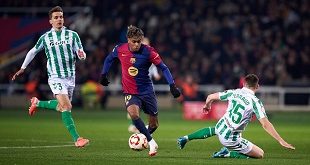“I was studying at MUBS (Makerere University Business School) at the time but when the opportunity of playing outside the country came I knew this is my life and career because I was turning professional and did not hesitate to take it,” Onyango explained.
Addis proved a mere launch pad for Onyango to the more competitive and lucrative league in South Africa. In his only season with St George, his stellar performances in the Champions League and CECAFA club championships had SuperSport United calling with a three-year deal. It opened the door to the Rainbow Nation and onwards to conquering Africa.
“He has been very consistent. Once he began his professional career he has never gone backwards,” noted Ssozi, who saw to Onyango’s arrival at Villa Park.
“Professional football is at another level. Most people are going to see you. So you need to be very careful, avoid bad acts because it is about you. There are things that are paramount like respecting training schedules, coaches, colleagues, and you have to care like a doctor, or a parent. Onyango has repeatedly demonstrated all these throughout his career,” added Ssozi, an ex-professional footballer.
Whereas Onyango has tried to stay away from controversy, there is one storm he could not duck from, however, much he tried.
Last year, he was the odds-on favourite to win the Ugandan Footballer of the Year award. His shock loss to little-known Shaban Muhammad of hitherto unknown Onduparaka FC startled everyone.
Although he was graceful about it, his agent Ivica Stankovic was as livid as many Ugandans who were furious and disgusted that Uganda’s football association (FUFA) could make such a decision.
In an open letter to Moses Magogo, the president of Uganda’s football federation (FUFA), Mr Stankovic said Onyango had won everything on the continent and reserved nothing of himself to see especially his country succeed.
According to Stankovic, Onyango had played with injury or under pain killers. On some occasions he had travelled to be with the team even when he was dead sure he would not be able to play. Yet he still wanted to be with his mates and offer any unreserved support he could. If such commitment was not worth honouring, then nothing else was.
“Is the whole of Africa blind in recognising his achievements for Uganda and his South Africa football club Mamelodi Sundowns?” Stankovic wrote.
In his view, Uganda owed breaking its 39-year jinx to the African Cup of Nations (AFCON) finals to its keeper’s heroics in the posts – as indeed CAF rightly noted in its citation to Onyango.
For such a contribution, Stankovic argued, he deserved the nation’s highest recognition in football.
FUFA’s defence of its SMS voting system failed to wash. It was not helped by the association’s earlier mix up of the players’ bonuses that Onyango reportedly questioned. This, some people claim, might explain why he would later be snubbed for the country’s biggest football accolade. Magogo is known all too well to brook no criticism.
Apparently, FUFA promised the national team US$10,000 if they qualified for the AFCON finals 2017. When the team qualified and President Yoweri Museveni hosted the team to a congratulatory luncheon in November last year, he promised to raise it by $5000. This followed a successful argument by Magogo that other countries paid more. He cited Ghana for example, whose players get about $15,000. But when payment was eventually made, it was less by what had been added. The players were dismayed, prompting Onyango to reportedly query at what point the deduction had happened.
In some ways, this saga is reminiscent of one five years ago involving a game Onyango considers his worst to date. In 2011, as in 2016, Uganda’s campaign had gone down to the final group game with the Harambee Stars of Kenya. It was a must win for qualification to the 2012 AFCON finals Gabon co-hosted with Equatorial Guinea.
The Cranes camp was upbeat. They were playing to a home advantage. They had slayed nearly whatever football giant that had presented at the Mandela National Stadium in Namboole. It was now or never.
On the eve of the crunch decider, a crisis broke out as the team prepared to receive a courtesy visit from President Museveni. David Obua, the team’s talisman and deputy captain, was kicked out of camp. He had insisted he needed to ask Museveni some questions – something the team’s management had expressly outlawed.
A professional footballer in Scotland at the time, Obua had wanted to draw Museveni’s attention to the plight of especially Ugandan based players who were owed outstanding allowances.
According to Obua, these players had been threatened they would never be called to the national team again if they dared to broach the subject of their stipends.
“Everyone knows we failed to beat Kenya mainly because of that [Obua’s dismissal],” says Alfred Musiime, a diehard supporter of The Cranes, who says he has attended all their home games beginning in 2000.
Onyango agrees.
“We were very disappointed mainly because we were playing at home and we knew we could make it,” he said in a recent interview with The Independent.
“We lost concentration just hours to the most important game of our generation. David was a very senior player on the team and always fought for Uganda,” Onyango once said in an interview months after the debacle.
Luckily, the 2016 campaign turned out differently. And for that Onyango and The Cranes got to be part of Africa’s biggest football fiesta.
“Definitely, it is a great achievement for me and the entire Uganda because after 39 years we are back on the big stage of African football and I’m proud to have been part of the generation that made it,” Onyango says.
****
editor@independent.co.ug
 The Independent Uganda: You get the Truth we Pay the Price
The Independent Uganda: You get the Truth we Pay the Price



